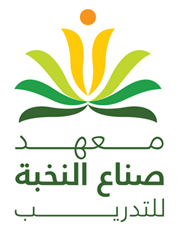Copyright Policy
The institute is committed to protecting and asserting copyright and other intellectual property rights owned by the institute,its employees, or its students. This policy puts forward the rights and responsibilities of the institute; its faculty and other employees that are affiliated. Copyright law is the legal protection of expressions contained in certain types of original work including literary, books, memoranda, computer programs, films, musical, artistic, sound recordings, web pages, pictorial works, articles, multimedia works and other audiovisual works. Copyright is the act of giving creators the exclusive right to copy and issue their work. The owner’s permission is needed to copy, adapt or share the copyrighted work.
Aims and Scope
The Policy describes the different categories of works of authorship and addresses issues of ownership and assertion of rights in connection with those works in Section I. Section II is concerned with the use of any third-party copyright materials whose copyright is not owned by the user.
I. Ownership of Copyright
This section of this policy specifically addresses the ownership of copyright of certain works created by the institute’s employees or students that may not be perceived as “commercially valuable” - meaning the materials are not likely to generate any income for the institute. The other types of work perceived as “commercially valuable IP” are addressed in the institute’s Intellectual Property Policy. Creators of works, not deemed commercially valuable, who have reasonable grounds for believing that they indeed have generated commercially valuable IP should bring this to the institute.
Similarly in line with the institute’s Intellectual Property Policy,
- The institute owns all IP created by the institute’s employees, including copyright, unless that work created was in a private capacity not involving the employee’s role.
- The institute’s students own all IP that they create including copyright, unless that work created was as a result of being an employee of the institute.
1. Teaching, learning and student assessment materials
The learning materials include multimedia, software, printed materials as well as digital texts and content from the web. This also includes both live teaching recordings and recordings created for educational use. The learning and teaching materials are owned by the institute. The copyright of these materials will belong to the institute and therefore may be retained, used and, if necessary, updated by the institute for administrative, educational and research purposes. In the case of performers’ rights related to the recording of lectures, demonstrations, workshops and other teaching activities, they are owned by the author(s) and licensed to the institute. The institute’s staff will be asked to give their consent to these arrangements. If the creators of such materials perceive their work as having potential commercial value, they are advised to contact the institute. As a result, should the e-learning materials have the potential to be utilized for commercial use, the institute agrees that it shall negotiate with the creator(s) regarding possible rewards. Also, should the institute choose not to exploit the materials for commercial use within a meaningful timeframe, the institute will negotiate with the creator(s) for the transfer of ownership of the rights in the e-learning materials. In return, the creator(s) shall grant the institute and its authorized users an irrevocable royalty-free licence to use such material for administrative, education, teaching and research purposes.
II. Third-party copyright materials
This section of the policy specifically addresses the use of work not owned by the user. The institute has a number of licenses that regulate the terms of utilizing copyrighted materials such as music, audio, databases, and scholarly publications. Failure to comply with the copyright law or licenses will result in serious consequences like the withdrawal of database access or the loss of license privileges. In addition, it could ultimately lead to a legal action against the individual. Hence, it is the institute’s members’ responsibility including contractors and visitors to the institute to observe and abide by the third-party copyright policy. Any individual with intentions of using any copyright material should make certain that they obtain the full authorization by the copyright author. This includes:
- Using and sharing copyrighted materials in research, teaching and personal study. Relevant licenses apply to both print and digital materials and that influences how much of the work can be copied, how it can or cannot be used, and for what purposes.
- Restrictions on downloading and sharing captured content
- Using the institute’s Archives is also restricted in regards to scanning, copying, and taking digital photographs of the materials. Ultimately, the procedures and regulated expected to follow are set by the copyright owner
- The institute's members like the employees and students who are authoring scholarly publications should be aware that they may not share the materials on social media. They should treat the works as third-party copyright, unless they have retained the copyright to their publications.
